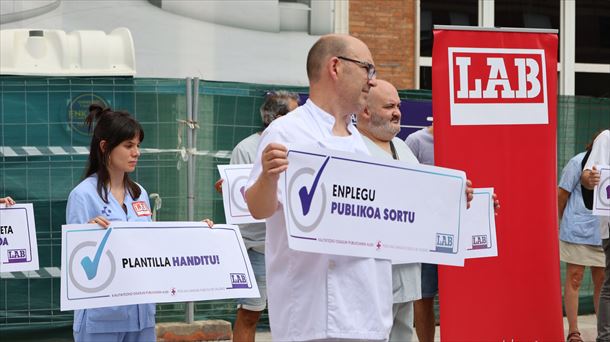Tehran blames Borrell for the attacks against the repression of the demonstrations for the death of young Amini after his arrest
Iranian Foreign Minister Hosein Amirabdolahian this Saturday before the European Union’s High Representative for Foreign Affairs and Security Policy Josep Borrell denounced the existence of “quite a few radical politicians” who use “anti-diplomatic language” protest against their country and “hide” behind the EU flag.
Amirabdolahian exposed these complaints during a phone call to discuss the state of play of the nuclear deal negotiations. In this context, the minister warned the European diplomat that, by explicitly supporting the protests in Iran over the death in custody of the young Iranian Mahsa Amini, “the strategic objectives of the European Union have been sacrificed for those of violent groups, including terrorists, supplying politicians with false information.
Iran has acknowledged between nearly 200 dead — according to Iran’s National Security Council estimates released this Saturday — and more than 300, according to the Revolutionary Guard, since the protests broke out. Iranian NGOs put this figure at over 400. The Iranian government blames the riots on groups of “rioters and terrorists” employed by foreign organizations and the opposition.
Similarly, the Iranian minister stressed the “important role” Borrell could play in “steering the European Union away from this” episode of unconstructive disturbances, “according to statements collected by the semi-official Iranian news agency Tasnim.
However, it was Borrell himself who in October proposed sanctions against Iran on behalf of the Twenty-Seven for its suppression of the protests. “We will study all available options to address the issue of Mahsa Amini’s death and the way Iranian security forces responded to the demonstrations,” he said shortly before the EU approved the first package of measures.
Since then, several European leaders have sharply criticized Tehran’s fierceness. Among them, French President Emmanuel Macron, who “condemned the repression of the Iranian regime” and “expressed his admiration for the women and girls” who have been demonstrating in Iran since September 16. Along the same lines, German Chancellor Olaf Scholz accused Tehran of being “violent”.
Iran reacted indignantly to both European leaders. Foreign Ministry spokesman Nasser Kanaani labeled Macron’s statement as “interference” and accused him of “encouraging violent people and lawbreakers”. Days later, he sentenced him for meeting with an anti-Iranian figure. “It is unexpected that a president of a country that claims to be a defender of freedom would undermine his position and end up with a hated puppet trying to escalate acts of terror in Iran,” Kanaani said. Scholz was also made ugly by his meddling.
Amid this tension, Iranian authorities are revising the law that has forced women to wear a veil for decades. “Parliament and the judiciary are working on the case,” Attorney General Mohammad Jafar Montazeri said a few days ago. He did not specify what might change in the law. The use of the headscarf became compulsory in 1983, four years after the triumph of the Islamic Revolution.
Source: La Verdad
I am an experienced and passionate journalist with a strong track record in news website reporting. I specialize in technology coverage, breaking stories on the latest developments and trends from around the world. Working for Today Times Live has given me the opportunity to write thought-provoking pieces that have caught the attention of many readers.



